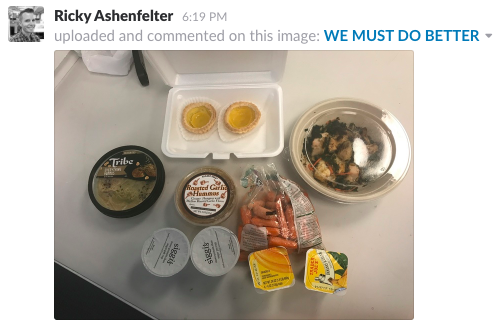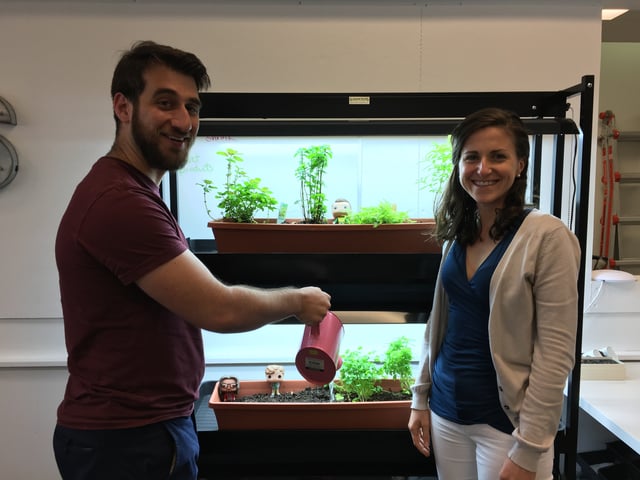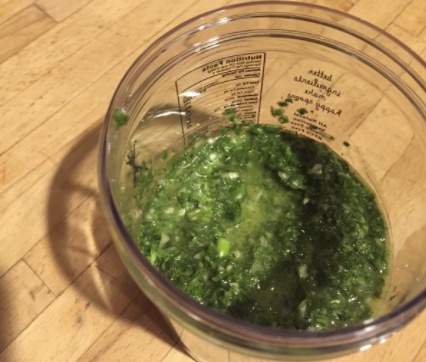-1.png?width=1024&name=Four%20Spoiler%20Alert%20Team%20Tips%20for%20a%20Food%20Waste%20Free%20Summer%20(1)-1.png)
Team culture is something we care about strongly at Spoiler Alert. As a mission-driven company helping food businesses better manage unsold inventory, we are proud that our offerings support hunger relief and facilitate a more efficient food system. “Employees must - without question - be passionate about Spoiler Alert’s mission and/or how it materializes as a product,” emphasized CEO Ricky Ashenfelter in an interview last May.
In addition to leading the business, Ricky also guides our waste reduction efforts, keeping us ‘in check’ when food goes bad at Spoiler Alert HQ. As a result, the Spoiler Alert team is often sharing tips and best practices on how to avoid wasting food both in the office and at home. With summer activities in full swing, we wanted to share four of our favorite Spoiler Alert team tips for reducing personal food waste this season.
 We use our team messenger app (Slack) to remind staff to be more conscious of letting food go to waste.
We use our team messenger app (Slack) to remind staff to be more conscious of letting food go to waste.
1. Grow your own
Sometimes the best way to avoid wasting food is to not buy it in the first place. This is especially true when it comes to ingredients that are sold in oversized portions and are (relatively) easy to cultivate on your own. For example, we grow fresh herbs in our office using a low-tech indoor garden setup, then share the harvest amongst the staff.
Team members Emily Malina, Chief Product Officer, and Adam Goldstein, Lead Software Engineer, manage the garden and have learned some valuable lessons for others considering this strategy:
- “Make sure that there is demand for what you grow. There is nothing worse than having a beautiful, productive herb garden, but no demand for what is grown. We focused on varieties of mint, basil, and cilantro.” - Emily
- “Stick to a schedule for watering and harvesting. I set up reminders in Slack (an enterprise instant messaging platform) so that we can easily stay on top of garden activities, and make sure we aren’t giving the plants too much love.” - Adam
 Adam Goldstein (left) and Emily Malina (right) tending to the Spoiler Alert garden.
Adam Goldstein (left) and Emily Malina (right) tending to the Spoiler Alert garden.
2. Share excess
Raise your hand if you ever waste food because there are not enough meals in a day to finish everything that you make or buy. Hand raised? Same here. When this happens, sharing the excess with coworkers is an effective strategy to ensure that the food is eaten before it spoils.
We recently saw this materialize when Kim McKee, our Summer Research Analyst, received way too much lettuce from her community-supported agriculture (CSA) subscription. Determined not to let this lovely, locally-grown produce end up in the waste basket, Kim washed and neatly packaged the lettuce, brought it to work, and sent a message to the team. Within an hour, Emily had claimed the leafy greens, and they were well on the way to ending up in a salad.
3. Get creative
A couple slices of aging bread, the last of the grated cheese, a browning avocado... to some, this may sound like a random listing of unappetizing food, but to others, the components of a rock-star grilled cheese sandwich. Creativity is key when coming up with ways to utilize leftover ingredients or those associated food parts (like carrot tops or broccoli stems) that usually end up in the trash.
Members of the Spoiler Alert team will often share stories after someone has made a meal from the fridge’s depths.
- Josh Mun, Software Engineer, likes to combine leftover meat in a pan then add the contents to stir fry or pasta.
- Matt Greenstein, Director of Business Development, recently shared a lovely photo of a scrambled eggs mash that included near-expired broccoli, onions, avocado, and cheese.
- Marty Sirkin, Chief Technology Officer, is a classically trained chef and therefore has a lot of advice when it comes to getting creative with leftovers. He particularly enjoys cooking with overripe bananas (the really brown, soft kind), and has a go-to recipe for delicious banana pancakes.

In addition to leftover ingredients, a little creativity also goes a long way when thinking about how to incorporate associated food parts that often end up in the trash. As a fun onboarding activity, we ask new hires to either find or develop a recipe that features these food parts. For the inaugural presentation, Kim enlightened us with a tutorial on how to make carrot top pesto, followed by a sampling. It was delicious!

Kim's Carrot Top Pesto creation.
4. Divert before you dispose
Even when a conscious effort is made, it is difficult to completely eliminate food waste. Luckily, there are an increasing number of community-based, residential food scraps collection services that charge a fee to pick-up food scraps then deliver material to regional facilities for composting or anaerobic digestion.
Companies like Bootstrap Compost and Garbage to Garden offer these services in the greater Boston region. Nate Clark, Spoiler Alert’s Marketing Manager, takes advantage of Bootstrap’s twice-a-month service. “Bootstrap makes food scraps diversion convenient and easy, which is awesome when you live in an urban area,” Nate explains. To identify food scraps collection services, check out RecyclingWorks Massachusetts Find-A-Recycler (MA-only) or BioCycle’s Find-A-Composter.
What techniques do you use?
Practicing what we preach brings our work to life and adds a fun element to our company culture. If you have effective food waste fighting tips that you want to share with us, post in a comment below or send us an email.
.png?width=250&name=SpoilerAlert_WhiteLogo_LeftStacked%20(7).png)
